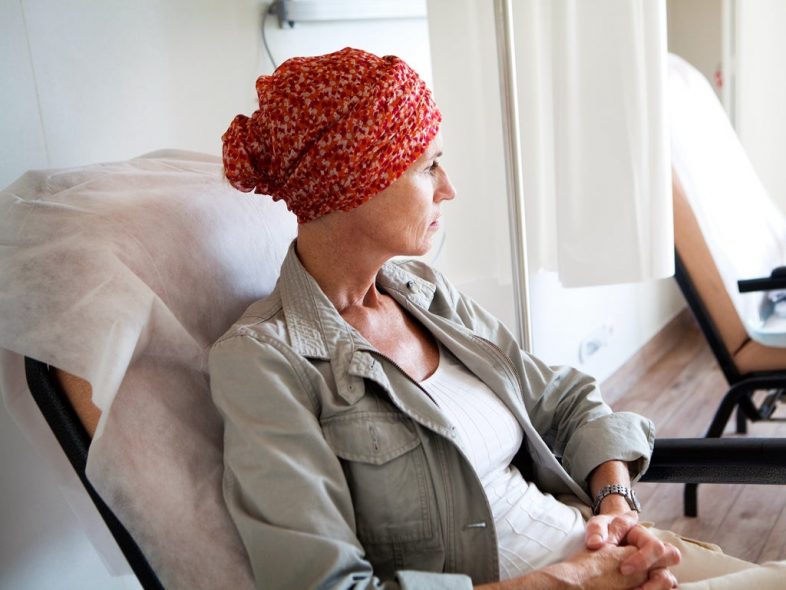The stress and anxiety that comes with a breast cancer diagnosis can be overwhelming. This is why, in an ideal world, breast cancer patients would only have to focus on their health during this difficult period. Unfortunately, financial problems often arise due to the high costs of treatment, as well as interruptions in work and childcare during and after treatment.
A 2022 Kaiser Family Foundation report found that a third of adults (or family members living in their household) chose not to receive the treatment or medical examination recommended by their doctor in the previous year due to cost.
This type of behavior is a sign of financial toxicity. Financial toxicity leads to stress, and it’s easy to understand how stress can be exacerbated in those undergoing very expensive and lengthy breast cancer treatment.
Keep reading for a better understanding of what the term means and how breast cancer patients can deal with it.
What is financial toxicity?
According to Cancer.gov, financial toxicity is “a term used to describe a patient’s problems with the cost of healthcare.”
Financial toxicity occurs when a cancer patient experiences financial stress due to the cost of cancer treatment and other related financial hardships such as being unable to work during treatment. The National Cancer Institute says there are many studies that show that cancer patients and cancer survivors are more likely to struggle with financial toxicity than people who have not had cancer.
How to overcome financial toxicity
Those struggling with financial toxicity during breast cancer treatment can take steps to get their finances in a place where they feel more comfortable and safe so they can focus on taking care of their health.
Completely overhaul your finances
When you’re feeling financially stressed (apart from the stress of being diagnosed with breast cancer and undergoing treatment), the first step you can take to get some relief is to get a clear idea of what your financial situation is like.
You can start your review by looking at how much debt you have and how much you have in savings, and pay close attention to your emergency savings fund. This way, you can see how much buffer you have for medical, child care, or other costs associated with your treatment, without having to draw money from your long-term savings for retirement, buying a house, or paying for your child’s education. The less interference there is with your long-term financial goals, the easier it will be to focus on your health.
Then check your budget and see if you can upgrade it to work better with your current lifestyle. For example, if you need to take a break from work, you may need to cut travel and entertainment expenses in your budget. Or, if you have increased prescription costs, you can add that to your budget and adjust your monthly savings goals.
When creating this new budget, you can go back to any outstanding debts you considered earlier and add minimum monthly debt payments. If you want to pay off your debt faster to relieve stress even more, you can increase this portion of your budget.
Not knowing where you are financially can add to your stress, so having a clear picture will help you plan how you will manage your finances during or after your treatment.
View payment plans
If you struggle to pay for your health care and treatment, you may end up incurring medical debt. It’s best to avoid placing this debt on a credit card whenever possible, as the high interest rates associated with credit cards can cause debt to build up rapidly. Many health care providers offer payment plans that charge no interest, making paying off that debt a lot easier.
If you have been treated in a hospital, such as having surgery as part of your treatment plan, you may want to inquire about any debt relief programs they have or discounts they may offer through charitable programs. Many hospitals have similar programs to support low-income patients.
Make early retirement
In an ideal world, breast cancer patients would never need to use their retirement savings to pay for life-saving treatments. However, if it comes down to a fight, this option is usually better than borrowing money (which comes with interest) to pay for medical treatment and other medical expenses.
While withdrawing money from a retirement savings account may hinder your progress towards building retirement savings, you can withdraw money from your retirement accounts to pay for unreimbursed medical expenses. This means that if your insurance company does not reimburse you for medical expenses, you will not face an additional 10% early withdrawal penalty. It’s worth noting that you can only make this type of early exit if your medical expenses exceed 10 percent of your adjusted gross income (AGI) for the year. You will also still have to pay income tax on the withdrawal amount.
Ask for help
No one should go through breast cancer treatment alone, and there are charities dedicated to helping patients overcome financial toxicity during breast cancer treatment. For example, Project Life helps support patients by funding costs such as drug co-payments, deductibles, health insurance premiums, and treatment-related travel costs. It is worth exploring both local and national philanthropic initiatives that can help provide financial support during your treatment.
bottom line
Getting a breast cancer diagnosis and going through treatment is stressful enough on its own, but the additional financial stress that can come with a diagnosis can add extra worries to someone’s already very full plate.
Taking the time to analyze your finances, understanding your payment plan options and knowing your early retirement and philanthropic options can help you manage financial toxicity so you can spend more. time and energy by focusing on taking care of yourself. .
Editorial disclaimer
The editorial content on this page is based solely on the objective judgment of our contributors and is not based on advertising. It was not provided or ordered by credit card issuers. However, we may receive compensation when you click on links to our partners’ products.


